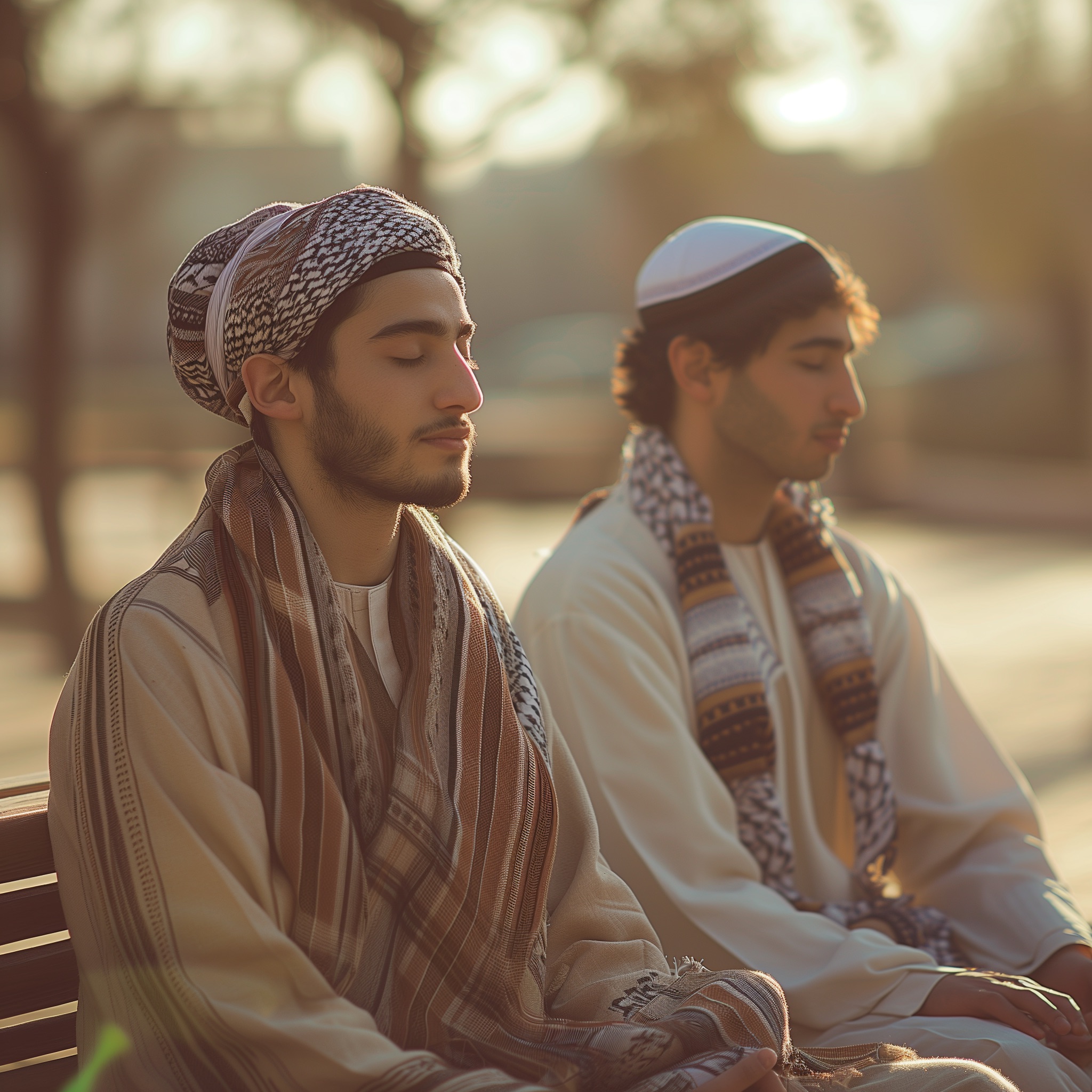We Are All Worthy of Life
How Not to Repeat History

With great sadness I have followed the atrocities committed by Hamas on October 7th and the Israeli retaliatory bombardment of Gaza.
I was reminded of my grandfather Paul Baumgart, who was a historian in Germany in the 1920s-’30s. Being a principled Catholic, he spoke up against the assaults on human rights and democracy. In 1933, he was assaulted, interrogated, and forbidden to teach. In the late ’30s he was thrown into a labor camp.
The term “life unworthy of life” (in German: lebensunwertes leben) was the mantra of the day. This phrase was used by the Nazis as part of their eugenics programs in pursuit of Hitler’s ambition of racial purity. This Nazi philosophy was ruthlessly applied to Jews, gypsies, and homosexuals. Untermensch, or inferior human, was used for those deemed unworthy of basic human rights and set the stage for the Holocaust.
The Nuremberg Laws of 1935, anti-Jewish legal actions, made this new philosophy real. Jews were stripped of their citizenship and civil rights, forced into ghettos. I remember being about 15 years old when this painful part of German history came into my awareness. Finally, in the early ’70s, the new social democratic government under Willie Brandt began educational initiatives about the rise of the Nazis and their atrocities. My history teacher had been in the resistance and felt an urgency to educate us. She wanted us to understand how democracy can break down and the insidious ways of polemic Nazi populists.
Nationalism, yes, tribalism was at fault in leading people to believe that one kind of human was worthy more than another. Striving to educate nationalism and racial arrogance out of myself, I determined that we would be on a slippery slope if we regarded one kind of people as better than another.
Coming to America in 1984, I loved the diversity of California and felt at home. I had three children who are part Jewish. However, the last several years have left me increasingly worried. If I did not have a persistent and strong meditation practice, one that anchors me in inner security, I would not have the tools to stay resilient and engaged.
The current disintegration of a healthy democracy in America makes me afraid and reminds me of my grandparents’ experience in the very early 1930s. Some politicians talk about unwanted groups as “vermin,” a term the Nazis used. The gradual opening to autocratic populists gives me a feeling of foreboding, and I am concerned when I see the emergence of autocracies all over the world.
We are currently witnessing book burnings and a repression of literary and journalistic freedom. There is intimidation — even bullying of people, aimed to prevent them from voting. This and the alleged manipulation of voting machines is reminiscent of Germany in the early 1930s.
The governing right wing of Israel — a country deemed democratic — seems to view Palestinians as inferior, as less deserving of human dignity, care, and safety than themselves. Both extremist Palestinians and extremist Israelis have horrible, even dehumanizing terms for members of the opposing group. The killing of Palestinian children is termed by Israeli extremists as “mowing the grass.” Hamas speaks about Israelis as “brothers of apes and pigs.”
When members of the opposing group are seen as “inferior humans,” it makes it all too easy to deny human rights. Not only citizenship and land, but also food, water, medical care, and basic safety are withheld. The wish for security and comfort of one group justifies the inhumane treatment of the other. And again, I am quite aware that members of the extremist wing of one side are equally capable of mistreatment of members of the other side.
It is urgent that we rethink what we believe about human rights, dignity, and respect. Just as my teacher, Frau Roth, educated us to wake up to the fact that history can repeat itself, we must wake up now!
The first step out of this self-repeating loop is to recognize what is happening. Unless we see clearly, we are in danger of unconsciously feeding those recurring loops again and again. We must remind ourselves and each other of our shared humanity.
The second step is to listen to the teachings of philosophers and elders forged by their gruesome experiences of WWII. I refer to those humanists who did not turn to hatred and blame and instead emphasized attitudes and steps to find a common ground for humanity, while keeping their hearts open.
The post WWII Jewish philosopher Martin Buber taught how to live in “I-THOU” relationships, in a relationship between one fully worthy human person and another. Victor Frankl, who had recently been freed from the camps, said in 1946, “No one has the right to judge another person’s life as meaningless or to deem another as unworthy of the right to live.” The empathy movement encourages us to listen to those with differing views and to build bridges where there are divides. (See theempathycenter.org.)
It is our responsibility to assure this to be our reality, our North Star, our heart’s intention. This includes all of us — Germans, Americans, Israelis, and Arabs.
Radhule Weininger, M.D, PhD, is a Santa Barbara psychologist and meditation teacher. Please see mindfulheartprograms.org and radhuleweiningerphd.com.
